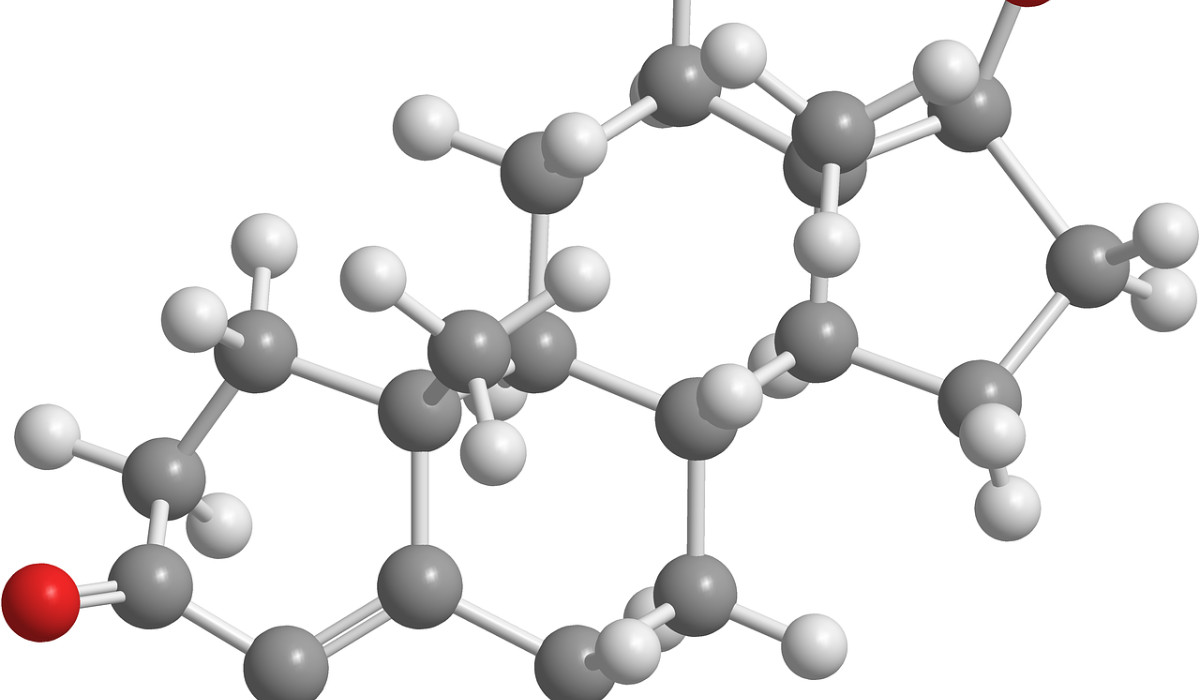Strategies to Keep Your Hormones in Check – A Comprehensive Guide
Hormonal health is a cornerstone of both your overall well-being and the vitality of your hair. Thyroid hormones, for instance, are essential for hair follicle development, affecting both the growth phase and the growing phase of hair strands. Balancing these hormones through a balanced diet rich in omega-3 fatty acids and healthy fats, while reducing intake of refined carbohydrates, can significantly contribute to maintaining your hair’s health and preventing hair loss. Furthermore, monitoring insulin levels and improving insulin sensitivity can prevent the excess testosterone that often leads to hair thinning.
Advanced solutions, including hormone therapy and blood tests, offer a more targeted approach to diagnosing and treatment of hormonal imbalances that may lead to hair loss. By understanding and adjusting your energy levels and testosterone levels, you can create a conducive environment for hair preservation and regrowth. It’s about more than just what’s on your head; it’s about the intricate balance of hormones within your body, which can be nurtured through lifestyle changes and medical interventions when necessary.
Understanding Hormonal Imbalance
Hormonal imbalance occurs when the delicate balance of hormones in your body is disrupted, potentially affecting a wide range of bodily functions. This imbalance can lead to various health issues, including hair loss, which is often a distressing symptom for many.
The Crucial Role of Hormones in Your Body
Hormones are the body’s chemical messengers, playing a pivotal role in regulating most major bodily functions, from hunger to emotional health. They are integral in maintaining the body’s homeostasis, influencing how well your organs and systems work together. A well-balanced hormonal state is crucial for the health and growth of hair, emphasizing the importance of hormonal health in preventing hair loss.
Identifying Signs and Causes of Hormonal Imbalance
Identifying hormonal imbalance involves recognizing signs like fatigue and weight fluctuations. Both managing stress and maintaining balanced levels of cortisol are key in preventing such imbalances.
Lifestyle Factors and Underlying Health Conditions
Thyroid disorders can significantly impact hormones control, leading to hormonal imbalance symptoms that affect your overall health and well-being. Understanding how these disorders and lifestyle choices contribute to hormonal imbalances is crucial for prevention and management.
Symptoms Common to Men and Women
Both men and women can experience symptoms of hormonal imbalance, such as hair loss, fatigue, and mood swings, highlighting the need for awareness and proactive management regardless of gender.
Navigating Through Myths and Facts
There is a vast amount of misinformation regarding hormonal health, and distinguishing between myths and facts is essential for understanding and properly managing hormonal imbalances.
Debunking Common Misconceptions About Hormonal Health
Many misconceptions about hormonal health can hinder appropriate management. For instance, it’s a myth that only women suffer from hormonal imbalances. Men also experience imbalances that can affect their well-being and hair health.
Separating Fact from Fiction in Hormonal Balance
Understanding the science behind hormonal balance allows for a clearer distinction between fact and fiction. Knowledge empowers individuals to make informed decisions about their health and to seek factual, reliable information.
Natural and Lifestyle Interventions
Adopting a lifestyle that promotes hormonal balance involves natural interventions such as diet, exercise, and stress reduction, which can collectively support hormonal health and prevent hair loss.
Diet Modifications for Hormonal Stability
Modifying your diet to include nutrients essential for hormonal health, while avoiding foods that can exacerbate hormonal imbalances, plays a significant role in maintaining hormonal stability and supporting hair health.
The Influence of Gut Health on Hormones
The gut microbiome has a profound effect on hormones control, illustrating the importance of gut health in preventing hormonal imbalance symptoms and promoting overall well-being.
Leveraging Exercise and Stress Reduction
Exercise and managing stress are pivotal in reducing stress hormones and preventing telogen effluvium, a condition where stress pushes hair follicles into a resting phase, leading to hair loss. These lifestyle interventions are key in maintaining hormonal balance and supporting hair health.
Hormonal Changes in Different Life Stages
Hormonal changes occur naturally at different life stages, affecting both hormonal health and hair growth. Understanding these changes is crucial for effective management and prevention of hair loss.
Managing Hormones During Perimenopause/Menopause
During perimenopause and menopause, hormone production changes significantly, presenting challenges in keeping hormones balanced. Addressing these hormonal shifts is essential for managing symptoms, including hair loss.
Understanding Hormonal Shifts in Men
Men experience hormonal shifts too, often overlooked in discussions about hormonal health. Testosterone levels naturally decline with age, leading to potential hair loss, decreased muscle mass, and changes in mood. These shifts can start as early as the mid-30s and are a natural part of aging. Understanding these changes is crucial for maintaining overall health and preventing hair loss through proactive measures like diet, exercise, and stress management.
Advanced Solutions and Medical Approaches
When lifestyle changes aren’t enough to manage hormonal imbalances, advanced solutions and medical approaches become valuable. This includes tailored treatments like hormone replacement therapy (HRT) for severe cases. Medical professionals may also recommend specific medications to address underlying conditions such as an overactive thyroid or polycystic ovary syndrome (PCOS), which can significantly impact hormonal balance and contribute to hair loss.
When to Consider Hormone Replacement Therapy (HRT)
Hormone Replacement Therapy (HRT) becomes a consideration when symptoms of hormonal imbalance severely affect your quality of life. This includes persistent issues like significant hair loss, mood swings, or other symptoms that don’t improve with lifestyle changes. Blood tests can help determine if HRT is a suitable option by providing a detailed look at your hormone levels. Always consult with a healthcare provider to discuss the benefits and risks of HRT.
Supplements and Herbal Remedies: What Works?
Supplements and herbal remedies can play a role in managing hormonal balance, but it’s essential to approach them with caution. Some supplements, like saw palmetto and adaptogens, have shown promise in supporting hormone health and preventing hair loss. However, effectiveness varies widely, and not all supplements are safe for everyone. Consulting with a healthcare provider before starting any supplement regimen is crucial to ensure they’re appropriate for your specific needs and won’t interact with other medications.
Diagnosing Hormonal Imbalance
Diagnosing hormonal imbalance starts with recognizing the symptoms, which may include irregular periods, excessive hair growth, or hair loss. A healthcare provider can then conduct blood tests to measure hormone levels and identify any imbalances. These tests are crucial in developing a treatment plan tailored to your specific needs, addressing both the symptoms and the underlying causes of hormonal imbalance.
The Process of Diagnosing Hormone Issues
Diagnosing hormone issues involves a comprehensive approach, including a detailed medical history and specific blood tests to measure hormone levels. These tests are particularly important during the anagen phase of hair growth, as imbalances can disrupt this phase, leading to hair loss. Understanding the exact nature of the imbalance is crucial for effective treatment, making these diagnostic steps indispensable in addressing hormone-related hair loss.
When to Seek Professional Medical Advice
If you’re experiencing symptoms of hormonal imbalance, such as unexpected hair loss, fatigue, or mood swings, it’s important to seek professional medical advice. These symptoms could indicate underlying health issues that require attention. A healthcare provider can offer guidance, conduct necessary blood tests, and recommend treatments to help manage your symptoms and restore hormonal balance.
Empathetic Communication and Support
Discussing hormonal health issues requires empathy and understanding. Whether you’re speaking with loved ones or healthcare professionals, expressing your concerns and experiences openly can foster a supportive environment. It’s also crucial for understanding your needs and finding the right strategies to manage hormonal imbalances. Remember, seeking support is a sign of strength, not weakness.
How to Discuss Hormonal Health Issues
When discussing hormonal health issues, it’s important to be clear and direct about your symptoms and concerns. Sharing your experiences with healthcare providers or loved ones can help them understand your situation better and provide the support you need. Using simple, straightforward language can facilitate clearer communication, ensuring your concerns are heard and adequately addressed.
Building a Support System for Hormonal Health Challenges
Building a support system for hormonal health challenges involves reaching out to friends, family, and healthcare professionals who can offer understanding, advice, and encouragement. Joining support groups, either in person or online, can also connect you with others facing similar issues, providing a sense of community and shared experience. This network can be invaluable in navigating the complexities of hormonal health and finding effective solutions.
Final Insights: Taking Control of Your Hormonal Health
Taking control of your hormonal health is a proactive journey that involves understanding your body, recognizing signs of imbalance, and seeking appropriate care. By employing strategies for hormonal balance and leveraging both natural and medical solutions, you can effectively manage symptoms and improve your overall well-being. Remember, every individual’s experience with hormonal health is unique, and what works for one person may not work for another, highlighting the importance of personalized approaches.
Summary of Key Strategies for Hormonal Balance and Hair Loss Prevention
To prevent hair loss and maintain hormonal balance, focus on a holistic approach that includes diet modifications, stress management, and regular exercise. Be aware of conditions like androgenetic alopecia, telogen effluvium, and alopecia areata, which are linked to hormonal imbalances. Chronic stress, an overactive thyroid, and other health issues can disrupt bodily functions and exacerbate hair loss. Consulting with a healthcare provider can help you address these concerns effectively, ensuring a tailored approach to treatment.
Emphasizing the Importance of Personalized Approaches
Each individual’s body uniquely produces hormones and responds to treatments, making personalized approaches to hormonal health and hair loss prevention critical. Understanding your body’s specific needs and how it reacts to different interventions is essential. This might involve tracking symptoms, experimenting with diet and lifestyle changes, and working closely with healthcare providers to fine-tune your approach. By focusing on personalized strategies, you can achieve better hormonal balance and reduce the risk of hair loss.





